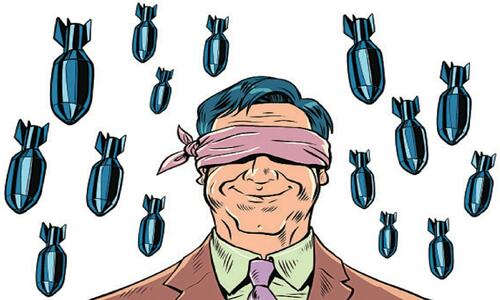The situation in the Middle East is grim. Threats of a wider military conflict now seem an imminent reality. After the February 8 elections, the government and the powerful establishment will struggle to maintain the much-required balance in geopolitics and international diplomacy. Both will also find it increasingly challenging to keep their own relationship aligned with the greater, long-term interests of the country and 241m Pakistanis.
The pre-poll environment is muddy, mercurial and far from ideal for both politicians and the establishment. Post-election civil-military relationship, the relationship between various organs of the state and the ties between the treasury and the opposition benches of the Parliament may evolve in any direction. Nothing seems certain at this stage.
Our economic and national security requirements badly need political stability and certainty in every sphere of our national life. The number one challenge for our political class and the powerful establishment is satiating this need — the sooner, the better.
Currently, the economic challenges are many, some obvious, some not so obvious. However, finding a sustainable solution to these challenges in isolation of the country’s national political and security situation is impossible.
It is impossible to find solutions to economic problems while ignoring the national political and security situation
This means no room is left for parochialistic approaches to understanding economic issues. Currently, at least three sets of major reforms are at various levels of implementation. These are (1) energy reforms, (2) tax and tax incentives reforms, (3) fiscal reforms, and (4) investment regime reforms. These are in addition to the ongoing drives for documentation of the economy and digitisation of the financial sector and payment systems.
The first three sets of reforms are being implemented to meet the International Monetary Fund’s (IMF) conditions for its previous and current lending. However, energy reforms have proved highly inflationary and have choked industrial production. Besides, their implementation has led small businesses and poorer segments to pay a much higher price than the big businesses and well-off sections of society.
Tax and subsidy reforms require a lot of work as well. The Federal Board of Revenue has achieved enviable growth in revenue collection but at the cost of collecting more through indirect taxes. In the process, it has passed on the burden of additional taxation/withdrawal of incentives disproportionately on the common man and smaller businesses.
Reforms to transform ailing and bankrupt state-owned enterprises (SOE) have not delivered any tangible results. The SOEs may continue to devour public money, more so if the incoming elected government finds it politically too expensive to follow through with the SOE’s rehabilitation plan.
Ongoing fiscal reforms have also failed to address growing differences between the federal government and the provinces over the rights to collect certain taxes and levies
The fiscal reforms have apparently prevented the government’s fiscal deficit from shooting up too high. However, the government has not been able to contain the growth of domestic debts effectively, nor has it reduced its reliance on borrowing from commercial banks.
As a result, a major chunk of tax revenue continues to go for domestic debt servicing, leaving peanuts for development expenses and the private sector remains unable to meet even a small fraction of its financial needs from commercial banks. Ongoing fiscal reforms have also failed to address growing differences between the federal government and the provinces over the rights to collect certain taxes and levies.
Elected federal and provincial governments must work hard to overcome these differences. The role of the Council of Common Interest (CII) will be very important in this regard.
But will the CII be able to discharge its responsibilities honestly? And will the new National Finance Commission (that decides resource sharing between the federation and the provinces) be constituted and allowed to work as enshrined in the country’s constitution? Well, that will depend on how strong or weak the new political setup would be and how much room our powerful establishment would give it to work as a functioning democracy.
The investment regime reforms are but a byword for all-encompassing operations of the Special Investment Facilitation Council (SIFC), a newly created body co-run by the civilians and the military.
The reforms SIFC introduced are primarily aimed at attracting quick and large amounts of foreign investment from the Gulf Cooperation Council (GCC) and other friendly countries.
The proof is in the pudding. If SIFC meets its objectives in the short run, it will help reduce our reliance on foreign loans and correct imbalances in the external economy. But since the IMF and the West have so far not bought the idea of SIFC, it will continue to face repeated challenges in its way of working even if it remains as mighty as it is today, even during the tenure of an elected government.
The drive for the documentation of the economy and digitisation of the financial sector and payment systems is praiseworthy. But accelerating this drive will depend on the level of IMF support and the venality of a “hybrid governance model” in the country.
Published in Dawn, The Business and Finance Weekly, February 5th, 2024












































Dear visitor, the comments section is undergoing an overhaul and will return soon.